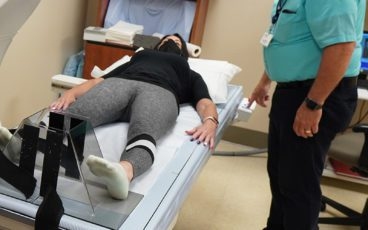Preventing Bone Loss & Fractures – Tips For Better Bone Health
As doctors who treat orthopedic injuries and conditions, our orthopedic physicians see many problems that are avoidable if the person were paying attention to proper bone health. In the busy lives of almost everyone, many things either get pushed to the side or we choose the quicker of two options instead of the best, such as with food or exercise. It can be easy to make better choices in what we eat and how we spend our time to help improve not only the health of our bones, but our overall health as well. Below are some tips to help you make your bones healthier and stronger for the rest of your life.
- Get Enough Calcium – If your diet is low on calcium you may be causing bone loss earlier than it should actually start and increasing the chances for fractures. If you are unable to eat foods rich in calcium like milk and cheese, talk to your orthopedic physician to find a calcium supplement that will work for you.
- Get Exercise – This is a continuing theme on our blog. Not only will exercise make you feel better but it also can reduce bone loss and strengthen your supporting muscles. A good workout routine can also increase your balance and coordination, which can also prevent an accident that causes you to fracture a bone.
- Moderate Your Alcohol Consumption – There may be a correlation between drinking more the two alcoholic drinks a day and weakening of bones. Always limit your alcohol intake.
- Avoid Tobacco Products – While we all know that tobacco is dangerous in general, many people aren’t aware that it may also weaken your bones.
- Get Plenty of Vitamin D – Vitamin D does many things for a person but for bone health it increases the absorption of calcium. Spending time in the sun is great way to get vitamin D but if this isn’t possible you can get it through certain foods like tuna, egg yolks, and milk. It is also available in supplements. An orthopedic doctor can tell you how much vitamin D you need in your diet.
- Discuss Hormone Therapy With Your Doctor – Primarily hormone therapy is used to treat bone density issues in women, like osteoporosis. Estrogen is the typical therapy that is prescribed by doctors but it also has the potential of other side effects. Make sure to discuss the good and bad side of hormone therapy with your orthopedist.
- Investigate Bone Medications – Recently there has been some exciting developments in medications that can be used to target bone loss, and in some cases actually increase bone density. These medications include Evista, Actenol, Boniva, and Fosamax. Once prescribed your orthopedic doctor will want to schedule follow-up visits to keep track of your bone density and they may prescribe additional medications.
While bone loss is something that can be reduced, as you age you will begin to lose some bone density. The World Health Organization (WHO) has a tool to determine your risk for bone factures called FRAX. Their test may help you evaluate if you are at risk for a broken bone. Of course if you are concerned about your chances of fractures, osteoporosis, or other potential conditions you need to Schedule online with an orthopedic doctor at IBJI. We can even perform bone density scans to spot potential issues or rule out issues with your bones. Our physicians are not only highly trained and experienced; they are some of the most caring physicians you will find. Visit one of our orthopedic doctors today and learn why the Illinois Bone and Joint Institute is the best choice for orthopedic medicine in Illinois.
*This content is for information only and is not intended to replace the diagnosis, treatment, or medical advice from your treating healthcare professionals. The content does not provide medical advice, does not constitute the practice of medicine or other healthcare professional services, and does not create a doctor-patient relationship. You should not rely on this information as a substitute, nor does it replace professional medical advice, diagnosis, or treatment. If you have concerns or questions, seek the advice of your healthcare professionals. If you think you may have a medical emergency, call your doctor or 911 immediately. Do not rely on electronic communications or communicate through this website for immediate, urgent medical needs. This website is not designed to facilitate medical emergencies. The use of the information is at the reader’s own risk. The links are provided for information and convenience only. We cannot accept responsibility for the sites linked or the information found here. A link does not imply an endorsement of a site.




